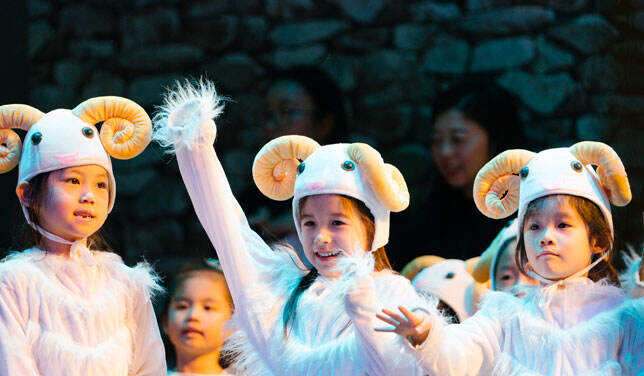When should we start school?
 Emma Button[/caption]
Emma Button[/caption]
This is a question I am asked a lot, by both friends, and in a professional capacity. All educators have their own views and experiences, so I always begin my advice with “in my opinion”.
In my own teaching career, the year group that gave me the biggest challenges coupled with the greatest sense of delight was nursery, which is what led me to advocate for this as the key year to start education.

Before I explain my reasons in greater detail, I think it is important to define what we mean by education. To be clear, I am not an advocate of formal education expectations in early years. There must be a play-based curriculum that supports all aspects of a child’s development. As children move into reception, there is a need to have more teacher-led sessions, so that we can stretch and challenge children in their learning. However, this must be balanced with the opportunities for children to play, explore and learn independently.

Studies from across the world have vastly differing opinions on this subject, but there is evidence to support children joining school at nursery age. Some specialists believe that this can help enormously in the relationships children develop when they move into primary-age schooling. There was also a study published a few years ago by the University of London suggesting that children who had spent time in early years education could advance their academic attainment by up to a year over those whose parents kept them at home until the age of five. Other studies agree that after the age of two, group-based care benefits all aspects of a child's development. Within Wellington College International Shanghai we also have sufficient data to support this belief. Children who have joined us in nursery have outcomes in year 1 and 2 that exceed the main cohort. This is especially true in writing: in Summer 2018, year 2 stable children were 10% higher in their attainment.
If this isn’t enough to persuade you, I think I can sum up the benefits in four simple statements.

When I say school, I mean the more formal learning we begin to see in year 1. Children who begin education in nursery benefit immensely from mixing with other children and will therefore be more prepared and better equipped when it comes to starting school.
Having already been used to an educational setting, they will adapt easily to a new learning environment. These children settle in quickly to new routines and can focus on their learning earlier. Starting in nursery will also help your child to develop their confidence in relating to a variety of adults.
Finally, it will also promote and encourage their independent skills, giving children a sense of self and confidence in their own abilities. They will learn to self-regulate their feelings, becoming part of a group while understanding behavioural expectations and routines.

Children can develop their skills related to playing and learning in a group, as well as one-to-one with a member of staff. Children are not born knowing how to play and in nursery they can learn these skills, this includes their interaction with others and the resources around them.
They will have exposure to a wide variety of resources including sand, water, arts and crafts, construction materials, as well as various forms of personal technology. All of these are planned for by skilled teachers and allow children to enjoy a far wider educational experience than might otherwise have at home.
Starting in nursery also allows your child to experience on a daily basis the joy of outdoor learning. This is a way to expand their learning beyond the classroom and apply new skills outside. The physical aspects of play in nursery are the key to building a foundation of gross and fine motor skills that support the development of later academic abilities.

Socialising with other children is very important for your child’s successful development. They will be eager to engage with their peers and become aware of the attachment they feel towards children they regularly play with. They will quickly learn the skills and enjoyment of sharing and working as a team.
Developing an understanding of friendship, team work and relating to others are all needed as a foundation for later learning. Those children who experience secure relationships and positive social interactions are more able to transfer these skills throughout each step of their educational journey.

Your children are being looked after by fully qualified early years practitioners who have a wealth of experience. They enjoy their work and strive to make every day interesting and engaging for the children in their care. They also have high behavioural expectations, a strong sense of routine and can support parents with many aspects that can often prove challenging.
Early years teachers witness the behaviour of children from a completely different perspective and through experience. With this in mind, they can be relied upon to offer constructive advice and opinions on the development of any individual child.

More relevant articles :
相关资讯













